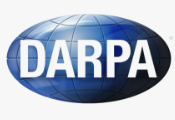PsiQuantum today announces Omega, a quantum photonic chipset purpose-built for utility-scale quantum computing. Featured in a newly published paper in Nature, the chipset contains all the advanced components required to build million-qubit-scale quantum computers and deliver on the profoundly world-changing promise of this technology. Every photonic component is demonstrated with beyond-state-of-the-art performance. The paper shows high-fidelity qubit operations, and a simple, long-range chip-to-chip qubit interconnect – a key enabler to scale that has remained challenging for other technologies. The chips are made in a high-volume semiconductor fab, representing a new level of technical maturity and scale in a field that is often thought of as being confined to research labs. PsiQuantum will break ground this year on two datacenter-sized Quantum Compute Centers in Brisbane, Australia and Chicago, Illinois.


























